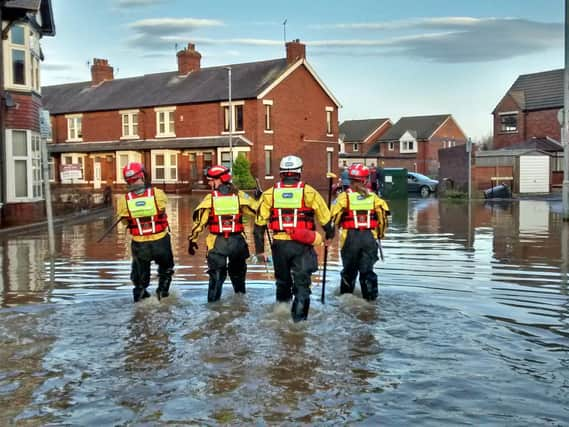National flooding conference: 'Flooding is everyone's responsibility'


A problem as enormous as flooding needs a "joined-up approach", with no single organisation able to solve the problem, industry bodies and flooded residents agreed at the National Flood Forum Conference.
Delegates called for funding for local decision making, for agencies to work more collaboratively with each other and more closely with residents in flood hit areas.
Advertisement
Hide AdAdvertisement
Hide AdWhile some people at the conference said austerity was a factor in slow responses to flooding, Mark Harris, former Lib Dem leader of Leeds City Council, said councils would never have had the money to prevent flooding, even during the "boom" years, as funding is allocated by national government and councils do not have enough freedom to spend it.
He said some people expected councils to solve the problem without taking any responsibility themselves, adding: "We're increasingly into a something for nothing mentality."
Sarah-Jayne Robins, chair of Todmorden Flood Group, said grant funding had helped individuals in the area but it "doesn't go very far".
Commenting on the need for better relationships with residents, she said: "The council doesn't always know what's happening on the ground. What the council thought was needed and we thought was needed were different things."
Advertisement
Hide AdAdvertisement
Hide AdJulie Foley, director of flood risk strategy at the Environment Agency highlighted research that showed more than a third of people who had been flooded suffered symptoms of post-traumatic stress disorder 12 months later.
“The long-term impact on people’s mental health is significant,” she said.
Delegates who had been flooded suggested introducing a system similar to energy performance certificates, which are produced for every home on the market in the UK. These could help people understand the flood risk when they buy a home and encourage them to take action to improve it.
Speaking to the Yorkshire Post, York Central MP Rachael Maskell said flood risk ratings for homes was a "really good idea to explore". The Labour MP said: "This is something we discussed at the All Party Parliamentary Group on Flood Prevention last week.
Advertisement
Hide AdAdvertisement
Hide Ad"One of the things that we clearly identified was that a lot of people buy their homes in good faith and find that it floods.”
She called the Environment Agency to be given the power to veto development on floodplains.
“There are some areas which are still being developed, which really shouldn't be built on.”
Another area the government needed to do more on was taking action to prevent surface area flooding, according to Andrew Russell from the Committee on Climate Change who said the causes of this type of flooding were often overlooked.
Advertisement
Hide AdAdvertisement
Hide AdRebecca Gow, Parliamentary Under-Secretary of State at the Department for Environment, Food and Rural Affairs was not present at the conference though gave a pre-recorded speech on video in which she commended emergency services and assured flood-hit members of the public the government was “not standing still”.
This message was echoed by Boris Johnson in an interview with ITV’s This Morning who claimed he was told to stay away from flood-hit communities during recent devastation.
Appearing to pass the buck to the Environment Agency and the emergency services, he said: "They said to us all you'll do is distract us and the business of dealing with the immediate crisis".
